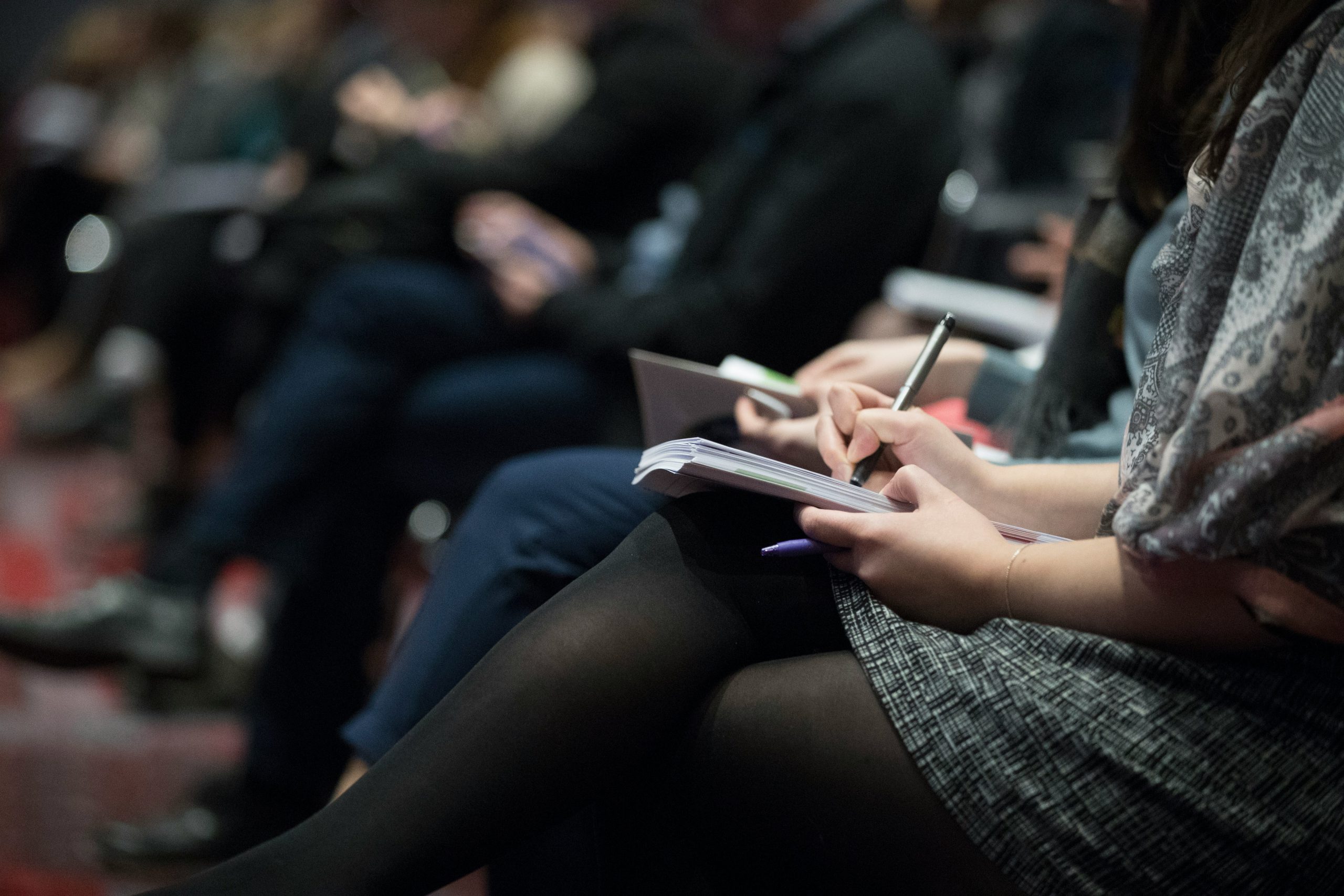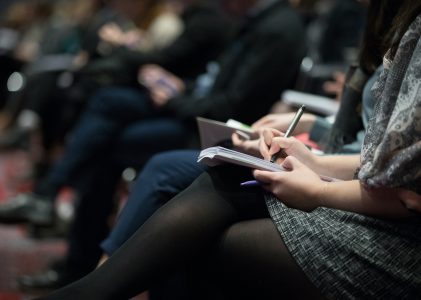I recently conducted interviews with two young professionals who have just entered the job market with the ambition and desire to make a positive impact. My first interviewee, Kinga, is building her career in sales within the finance sector and is committed to volunteering in her spare time. Meanwhile, Marta has started her career as a journalist at one of the largest media outlets, with high hopes of making a positive change and fulfilling her potential. I aimed to uncover their motivations, feelings about their professional careers, and daily challenges.
I decided to reach out to Kinga after we briefly spoke in person while volunteering with the “Termokawa” association a few years ago, an initiative supporting homeless people in Krakow. I was impressed by Kinga’s insights and her dedication to both her professional career and humanitarian efforts.
Marta works in the same newsroom as I do, so we’ve had several interactions during our daily tasks. I decided to interview her because of her positive attitude and our shared interests in humanitarianism and communication for development. I discovered that Marta’s educational background is related to international relations.
I found the initial interactions to be the most challenging, as they pushed me out of my comfort zone. As a fresh graduate journalist, I hadn’t yet had the opportunity to work in the “field,” so I was concerned about my lack of experience and confidence. Additionally, reaching out to individuals I barely knew felt awkward. However, once the ice was broken, the rest of the task went smoothly.
I reached out to both interviewees via LinkedIn, which I consider the best platform for making professional connections due to its reliability. By reviewing their professional profiles, I was able to prepare more detailed questions for the interviews.
Interview with Kinga
Kinga, who lives in a different city, and I spoke via Zoom. She agreed to be recorded but preferred not to turn on her camera. After overcoming some technical issues, we managed to have our conversation late on October 28th. Kinga was more reserved in her answers, likely due to the “online” nature of the interview, which made it challenging to build trust and connection. Despite this, the interview was ultimately positive.
Interview with Marta
Marta, who works in the same newsroom as I do, met with me in person on November 4th. I booked a separate room to ensure she felt comfortable and free from the judgment of colleagues. The interview atmosphere was relaxed, and we exchanged jokes and observations about the journalistic environment. Although the interview was satisfying, we both felt the pressure of time as it took place during our lunch break. I felt a bit guilty for taking up Marta’s personal time, but she assured me she was happy to help.
I believe that both interviews provided valuable insights into the motivations and challenges faced by young professionals balancing their careers with a desire to make a positive impact.
The interviews were originally conducted in Polish, the native language of the interviewees. They were then transcribed and translated by me with the assistance of online translation tools, as I am not a professional translator. Both interviews were reviewed and authorized before being posted on the blog.
Here are the most interesting excerpts from the interviews:
Kinga:
J: What motivated you to start volunteering and how has it impacted your personal and professional life?
K: It’s a complex question because I started volunteering quite early, still during school. Through such actions organized actually already in middle school, then in high school. And so I got involved in the activity, which has a “greater meaning”… Volunteering gives me a greater sense of satisfaction and fulfillment. Therefore, I continue to do it despite having more limited time resources than before.
J:How do you manage to balance a demanding professional career with volunteering and do you have any advice for people who would like to do the same?
K:Well, I think the key is to choose a specific project, foundation, institution, volunteer activities that you want to carry out, because there are so many options that depending on what time possibilities you have, when you have time during the day, whether during the week or on weekends, you can choose the right project.
J:Why didn’t you decide to develop a professional career in the humanitarian field?
K:There are definitely several issues. I used to think quite actively about taking up such a career … But there not many positions in aid institutions, and many of these jobs are also, worse paid, and for me, the sense of independence and the ability to support myself and my familiy, also financially, is crucial. To sum up, there are more available positions in the corporate or business sector. Additionally, there are financial issues to consider, so I would prefer to continue volunteering rather than making it a full-time professional commitment.
Marta:
J:What inspired you to pursue a career in journalism, and how has your professional journey been so far?
M: What inspired me to pursue a career in journalism stemmed primarily from a passion for analysing events and understanding the mechanisms influencing global politics and society—areas that have been close to me since my studies in international relations. Even then, I was fascinated by the role of the media as a bridge between global events and audiences. I wanted to be part of the process that provides people with reliable and valuable information and helps them better understand the world. My path to journalism was not straightforward and began with law studies, after which I worked in a notary office. This job gave me a solid foundation in precision and meticulousness, but at some point, I felt that I wanted to go in a direction that would allow me to better understand the world and have an impact on its interpretation.
J:What kind of challenges do you encounter in your daily work? How do you deal with them?
M: One of the main challenges I face as a journalist is maintaining objectivity and integrity in a world of fast-paced information, especially on social media. The dynamics and pressure of publishing immediate information are enormous, but I always remember the principle of thorough fact-checking. Thanks to my experience in the notary office, I developed attention to detail and source analysis, which helps me avoid hasty conclusions in journalism.In my opinion, the future of journalism will be largely shaped by technologies such as artificial intelligence, which is already visible in my work. Journalism increasingly uses data in a more interactive way, which places new demands on journalists, so I constantly expand my technological skills and follow trends to best meet the needs of the audience.The work of a journalist is demanding and does not always bring satisfaction. Every day I face time pressure, difficult topics, and high expectations from the audience, which is often stressful and exhausting. Nevertheless, the awareness that I provide people with the information they need to understand the world gives me a sense of purpose and motivation to continue working.

